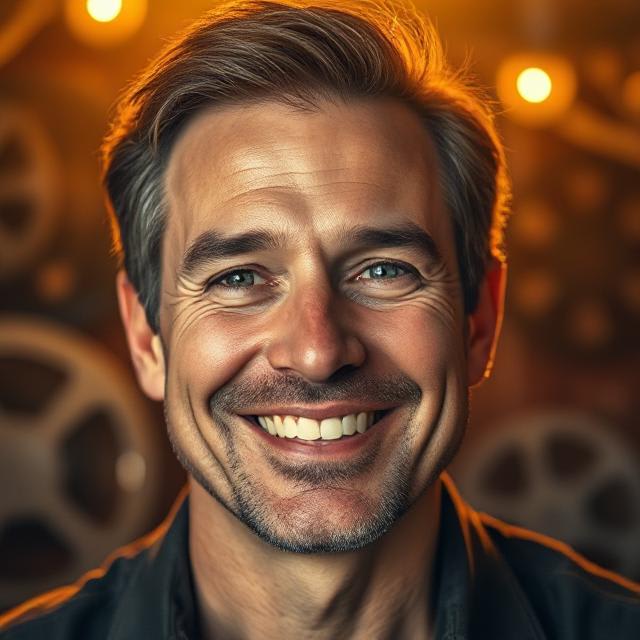It’s rare for the whole world to stop for a single person.
But on August 11, 2014, it did.
That was the day we learned Robin Williams — the man who made us laugh until our stomachs hurt, and sometimes cry when we least expected it — was gone.
For many, the news didn’t feel real. How could the brightest, fastest, most joyful presence in Hollywood suddenly be gone? How could someone who gave so much light be struggling in so much darkness?
—
The Day the News Broke
Social media exploded. TV anchors choked up mid-broadcast. Fans from San Francisco to London left flowers outside theaters, taped handwritten notes to walls, and painted murals in his honor.
In the UK, BBC Radio paused regular programming to air a tribute. In the US, talk shows went silent for a moment before sharing clips of him at his best — the kind of comedic magic that seemed impossible to lose.
Hollywood was stunned, but this was different from the loss of other stars. This wasn’t just about losing a great actor. It was about losing someone who had been part of our lives for decades, almost like a friend we’d never met.
—
The Roles That Defined Him
For US audiences, Robin Williams was the fast-talking alien Mork in Mork & Mindy, the genie who stole every scene in Disney’s Aladdin, the desperate dad in Mrs. Doubtfire, and the teacher who made us want to stand on our desks in Dead Poets Society.
For UK audiences, he was equally beloved — his films aired on BBC and ITV every holiday season, from Hook to Good Morning, Vietnam. His wit and warmth crossed the Atlantic with ease.
He wasn’t just funny. He was deeply human. He could make us laugh one second and leave us wiping away tears the next.
—
The Laughter Was Real, But So Was the Pain
We later learned that Robin had been battling a severe form of Lewy body dementia, a neurological disease that can cause anxiety, depression, and disorientation. It had gone undiagnosed until after his death.
This wasn’t the “funny man who was secretly sad” story that headlines first suggested. It was far more complex — and far more heartbreaking.
The idea that one of the most joyful performers in history had been quietly suffering reminded the world that mental health struggles can touch anyone, no matter how successful, loved, or talented they are.
—
The Tributes That Poured In
From fellow comedians to US presidents, tributes came quickly and sincerely.
Steve Martin called him “a pure talent.”
Barack Obama said he “arrived in our lives as an alien, but ended up touching every element of the human spirit.”
In the UK, Stephen Fry remembered him as “a prince among men” with a mind “like fireworks.”
Even theme parks joined in. At Disneyland, fans gathered around the Aladdin attraction to lay flowers for the Genie. In London, street artists painted his likeness on walls with the words: O Captain, my Captain.
—
The Cultural Pause
When celebrities pass away, we post photos, we share favorite movie quotes, and then — usually — life moves on.
With Robin, it was different. The collective grief lingered. People rewatched his films, not just for nostalgia, but to understand why he had meant so much to them.
For weeks, TV networks in the US and UK ran marathons of his work. Social feeds filled with personal stories — how a joke of his had lifted someone out of a bad day, or how a role he played had inspired someone to become a teacher, a comedian, even a parent.
—
Why His Death Changed Conversations
Robin’s passing became a turning point in how the US and UK media talked about mental health.
Celebrities began speaking more openly about depression and anxiety. Charities saw an increase in donations for suicide prevention programs. TV hosts began including hotline numbers at the end of emotional segments.
For perhaps the first time, the conversation wasn’t just about losing a celebrity — it was about what we could learn from the loss.
—
The Legacy That Lives On
It’s been years now, but Robin Williams hasn’t faded from memory. He’s in the way people still quote his movies — Carpe diem. Seize the day.
He’s in the way comedians still reference him as the gold standard of improvisation.
He’s in the way fans smile when they hear the Genie’s voice, even if it’s just a few seconds in a Disney montage.
For both US and UK audiences, he’s a reminder that the people who give us the most joy are sometimes the ones who need it most themselves.
—
Why the World Stood Still
The day Robin Williams died wasn’t just about losing a Hollywood icon. It was about realizing how connected we had all been to his work — across countries, across decades, across generations.
In the US, people remembered seeing Mrs. Doubtfire in theaters with their families. In the UK, they recalled hearing his voice echo through their living rooms every Christmas. He had woven himself into our lives in ways we didn’t even notice until he was gone.
That’s why it felt like the world stopped. Because in a way, it did.
—



